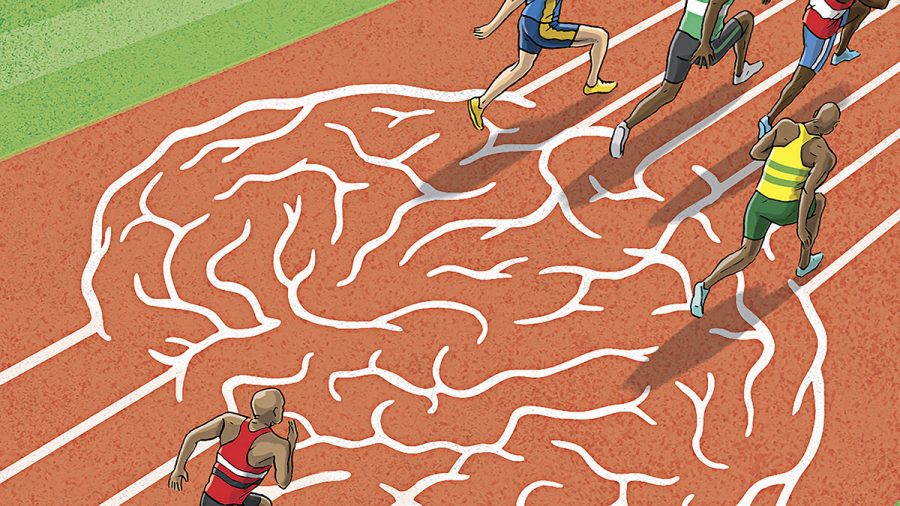The Hidden Struggles of Athletes
Mental Health and Sports
September 24, 2021
When thinking about mental health, most people don’t think of athletes. It’s safe to say that most people didn’t make that connection until Simone Biles brought it to attention when she dropped out of the all around in the 2020 Tokyo Olympics. It’s a good thing that she did, because this is an issue that needs to be talked about.
While athletics can be an outlet for some, it can also be the destruction of others. Athletes are prone to a multitudes of mental health issues and are at a higher risk for developing mental health issues. According to Athletes for Hope, “Among professional athletes, data shows that up to 35% of elite athletes suffer from a mental health crisis which may manifest as stress, eating disorders, burnout, or depression and anxiety” (https://www.athletesforhope.org/2019/05/mental-health-and-athletes/).
While eating disorders seem rare and only affect 9% of the global population, they are much more common in athletes. According to the National Eating Disorder Association, “over one-third of female athletes reported attitudes and symptoms placing them at risk for anorexia nervosa” (https://www.tpoftampa.com/eating-disorders-and-sports/). Male athletes are also at a higher risk of eating disorders. A 1988 study at Midwestern College found that “21.5% of participants met Diagnostic and Statistical Manual of Mental Disorders, III (DSM-III-R) criteria for bulimia, while 3% met criteria for anorexia nervosa (AN) (1)” (https://journals.lww.com/acsm-csmr/fulltext/2008/11000/eating_disorders_among_male_athletes.9.aspx).
There is a stigma that athletes are supposed to be strong and unbreakable, but that is simply not the case. Even the strongest and most decorated athletes have or do deal with mental health issues and mental illness. A prime example is Michael Phelps, the most decorated Olympic swimmer. “Phelps battled depression and suicidal thoughts. The swimmer admits that there were days when he didn’t want to get out of bed and he sometimes coped by drinking” (https://vertavahealth.com/blog/athletes-with-mental-illness/). Another athlete that has dealt with theses issues is Lindsey Vonn, professional US alpine ski racer, who has also dealt with depression. She said, “I couldn’t get out of bed anymore. I felt hopeless, empty, like a zombie” (https://www.usatoday.com/story/sports/olympics/2012/12/13/skier-lindsey-vonn-fights-depression/1768597/).
If you or someone you know is struggling with mental health, please seek help from someone. You can ask your parents, teachers, councilors, a trusted adult, or even your friends. You do not have to suffer alone and someone will always be there to help you though the hard times. Remember that you are important and you are loved and that no one will judge you for your struggles. So please, do not suffer in silence and tell someone if you are hurting.

